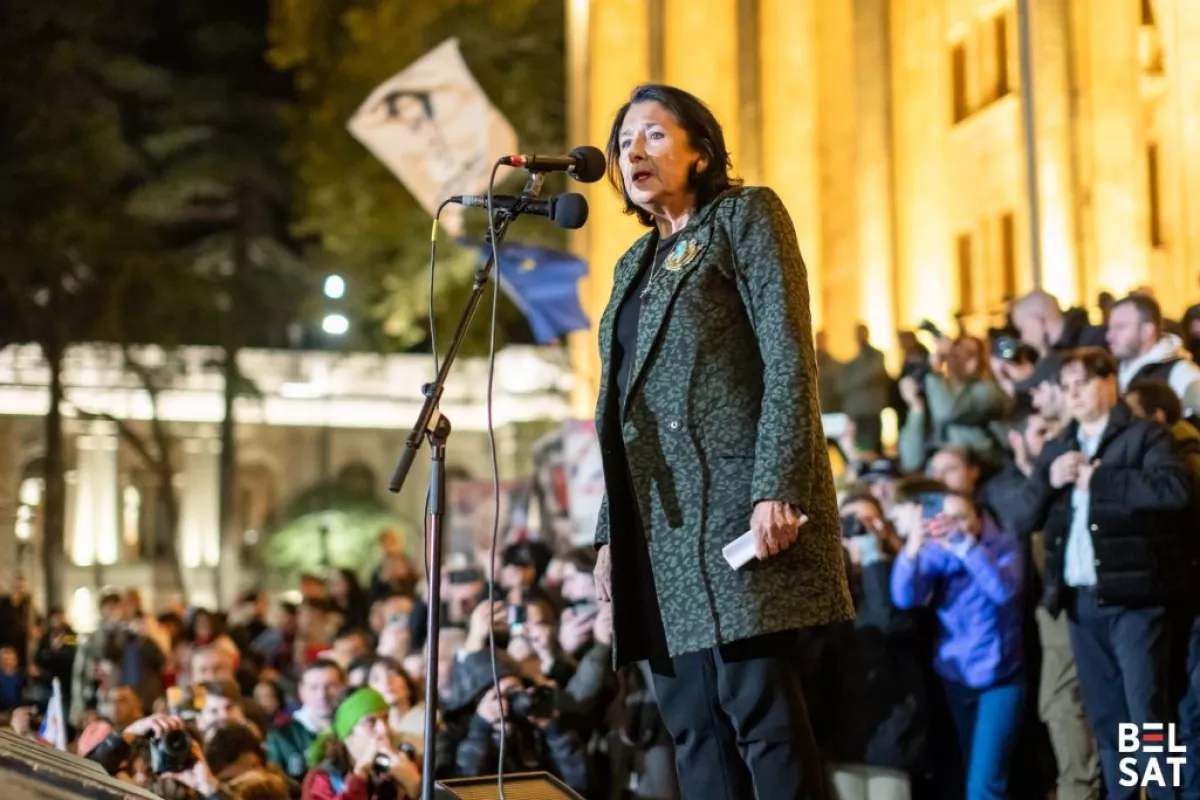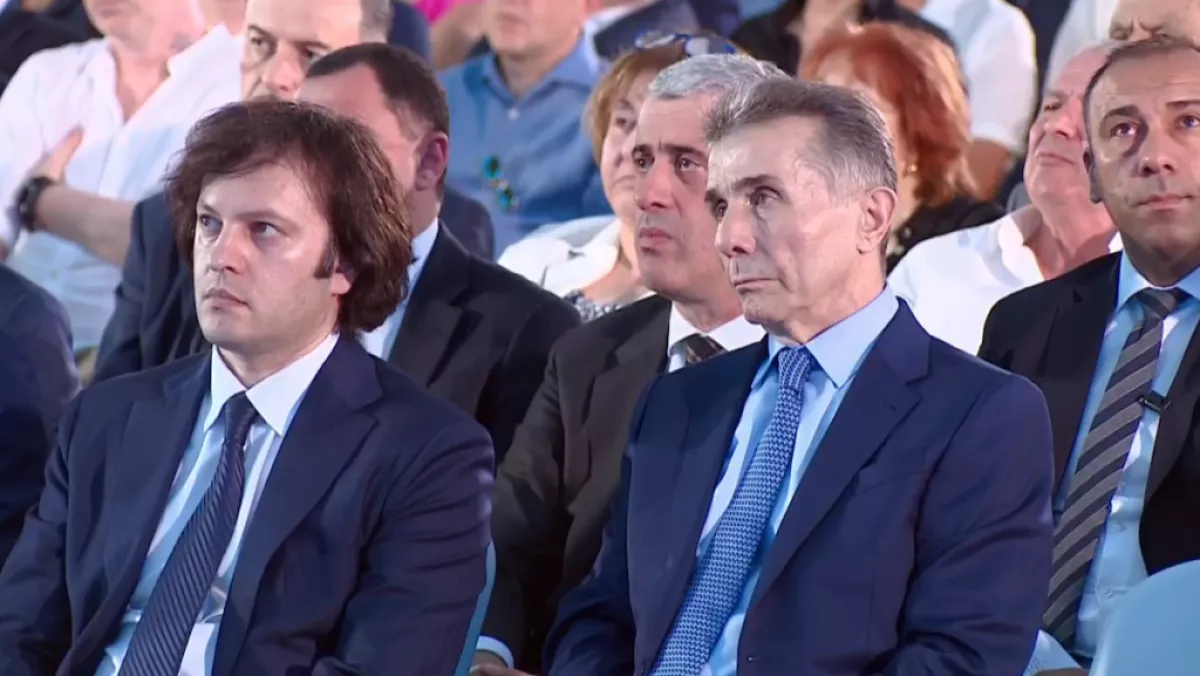Georgian elections: Street rallies turn out to be fruitless Why the opposition’s hopes crumbled?
On the evening of October 28, an opposition protest took place in front of the Parliament building in Tbilisi, opposing the results of the parliamentary elections held on October 26, in which the ruling party Georgian Dream emerged victorious. By the time of the protest, it was already clear that it would end resultless.
The West, albeit with numerous stipulations, recognized the elections. Following this, all statements from both opposition leaders and Salome Zourabichvili regarding "falsifications" and "non-recognition" of the election results became just empty words.
Despite foreign media reporting on October 28 about a "massive" opposition rally, the turnout was quite “sparse” this time, failing to match even the participation seen at the opposition's pre-election rally on October 20. There was no trace left of the "revolutionary" and protest momentum from earlier this year, when the opposition brought crowds to the streets to protest against the foreign agents law. On the evening of October 28, the metro and public transport in Tbilisi, usually bustling with protesters, were nearly empty. Even during the height of the opposition rally, operators and reporters struggled to find angles to capture the "crowd" in front of Parliament. Outside of Rustaveli Avenue, there was no indication of any impending "revolution."
The protest against the "fraud" of the election “fizzled out” before it even properly began. When opposition leaders and Western media talked about the "Georgian people taking to the streets in large numbers against election fraud," they were mistaking wishful thinking for reality. This may have been the opposition's "farewell rally." While they might still manage to gather protesters on certain occasions, there won't be much point in doing so. Further attempts to rely on street demonstrations will only lead to the complete marginalization of protests.
It is clear that the pro-Western opposition has no chance of repeating the events of 2003 and the so-called "Rose Revolution." Back then, under the pressure of mass protests against the falsification of parliamentary election results, Eduard Shevardnadze resigned, and Mikheil Saakashvili became president. Regardless of one’s views on him, he was seen as a young, charismatic leader at the time. Now, there are no such figures in the opposition camp. Most are politicians from the Saakashvili era, but more than 12 years have passed since then, and a different generation has emerged.

The youth aged 18 to 20 today do not remember the Saakashvili era, and opposition leaders are seen by them as "people from the past." Furthermore, Salome Zourabichvili, often referred to as the "French grandmother pensioner," does not fit the image of a "revolutionary leader" who can rally "pro-European youth," especially since she speaks Georgian with an accent.
At the rally in front of Parliament, one of the leaders of the Unity — National Movement, Giorgi Vashadze, demanded new elections with the involvement of some "international electoral administration," framing it as an ultimatum. Such statements only further discredit the opposition in the eyes of the majority of the Georgian population. They are essentially calling for the abolition of their country's sovereignty and its transformation into a colony controlled from abroad.
What else can be called the proposed "international electoral administration" other than a tool of external governance? This suggests that opposition leaders fundamentally do not trust the people of Georgia to determine their own fate and instead seek external masters, controllers, and overseers. It would be difficult to devise a better proposal that discredits the opposition leaders and portrays them as enemies of Georgia's independence, even for the Georgian Dream, and skilled propagandists could effectively convey this message to the public.
Moreover, during the rally on October 28, the opposition leaders announced that they would refuse to enter Parliament and would resign their parliamentary mandates. However, it is unlikely they will be able to do this in a coordinated manner. Having failed to unite before the elections, the opposition is unlikely to pursue a cohesive policy afterwards, especially after their defeat. A split within the opposition is quite possible. When defections from the opposition camp to the Georgian Dream begin, it will merely be a matter of time.

One could even speculate about which politicians might join the Georgian Dream without feeling particularly nostalgic for "European values." This includes the party of former “dreamer”, ex-Prime Minister Giorgi Gakharia. The mere participation of this political force as an opposition "separate column" in the elections would have been entirely justified from a political technology standpoint, had the opposition won. In that scenario, Gakharia's party would have attracted the remnants of the "defeated" "Georgian Dream" and a significant portion of the bureaucracy, ensuring total dominance of pro-Western forces in Georgia's political sphere.
However, after the Georgian Dream emerged victorious in the elections instead of suffering a defeat, the party of Giorgi Gakharia has lost its significance. Moreover, the opposition is marginalizing the very "European idea" in the eyes of Georgian citizens right before our eyes. Therefore, one could theoretically anticipate the "prodigal son's" return to the Georgian Dream in one form or another. It is also possible that deputies from other opposition factions will situationally align themselves with the ruling party. With effective strategy, the Georgian Dream could ultimately secure a constitutional majority in Parliament when voting on important legislation.
Vladimir Tskhvediani, Georgia, for Caliber.Az








